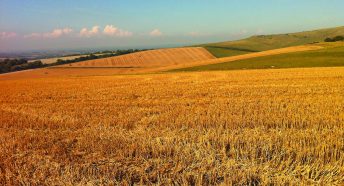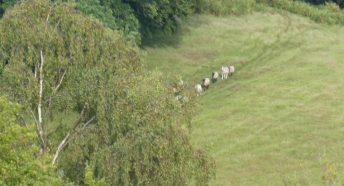New farmers and new small farms can kick-start agricultural revolution
The Brexit vote offers chance for farming to become more diverse and environmentally resilient, say countryside campaigners.
A new report by the Campaign to Protect Rural England (CPRE) argues that farming in England needs to become more diverse to prove environmentally resilient and publicly accessible over the coming years.
The New model farming paper argues that a more diverse sector – in demographics, farm size and production – would forge a more resilient future that offers rewards beyond food: beautiful landscapes, clean water, abundant wildlife, better flood management and improved carbon storage. It also argues that a post-Brexit settlement along these lines would make clearer the public benefits of huge public investment in farming.
The paper suggests that Government should attempt to reverse narrow trends of industrialisation and short-term efficiency that have long inflicted damage on vital natural assets – from landscapes and wildlife to soils and water. Damage to soil is estimated to cost £1.2 billion a year, while populations of farmland birds in England have more than halved in the past 40 years.
To arrest this decline in diversity across the sector, CPRE argues that Government should address the bias in policy towards larger farms through the tapering of public funding to benefit smaller farmers. It is currently thought that around 80% of the Common Agricultural Policy (CAP) payment goes to the 20% largest businesses.
With 34,000 fewer farms in the UK than there were a decade ago, CPRE also suggests that more land should be made available to new groups of farmers and communities.
Graeme Willis, food and farming campaigner at the Campaign to Protect Rural England (CPRE), said:
“The Government has a great opportunity post-Brexit to determine what farming and the English countryside will look like. Do we really want to continue the pattern of ever larger agri-business, less connected to communities and out of kilter with nature?
“To forge a more resilient future, the Government should encourage a mix of farms that produce different foods for local people and varied, thriving landscapes. The obvious place to start is by redirecting funding to help smaller, more innovative and mixed farms, and by making land available for new farmers to enter the market.” New model farming is the first in a series of ‘Food and Farming Foresight’ papers from CPRE, written to encourage debate about the future of farming. The paper also suggests Government could:
- encourage more dynamism and diversity in farming through a community right to bid, and a transparent register of landholdings;
- encourage the use of low cost technologies and techniques to benefit all farmers;
- and ensure that a much higher proportion of public funds are directly linked to delivering public benefits.




